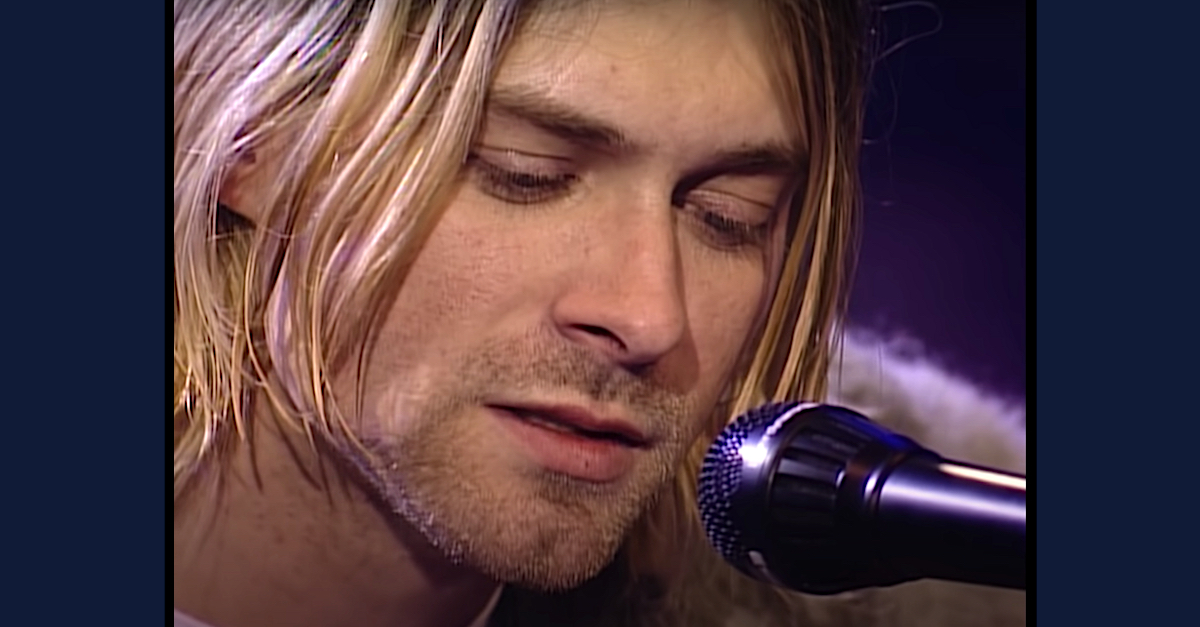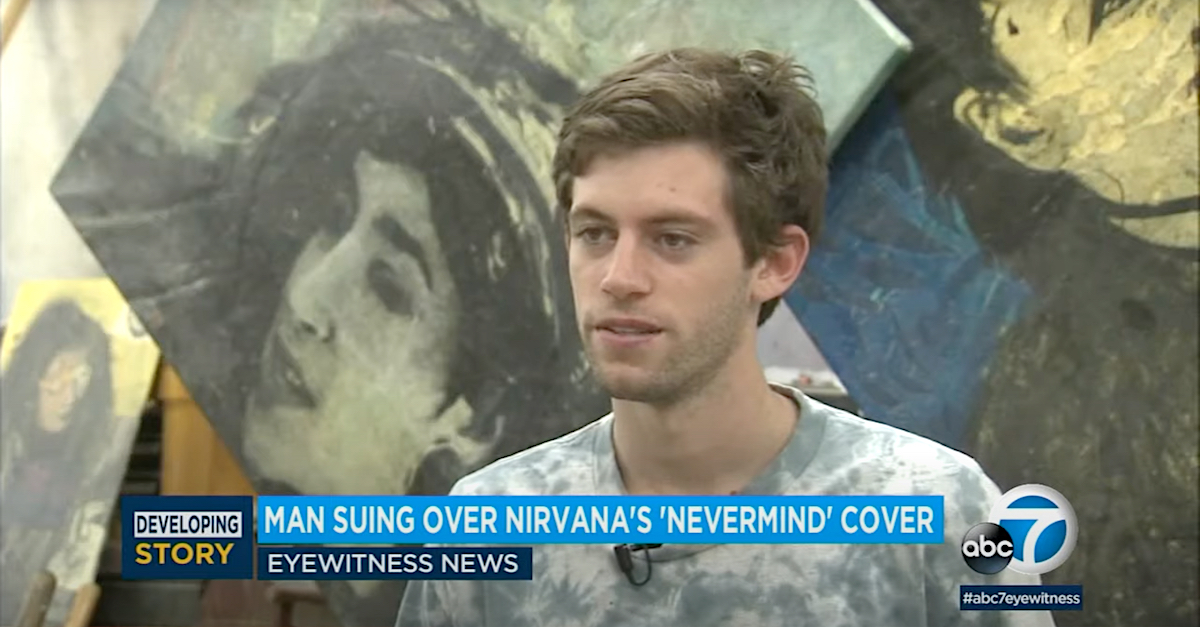
Kurt Cobain appears in a YouTube screengrab.
A federal judge in California has dismissed a lawsuit which described the cover of Nirvana’s breakthrough album as child pornography, but he gave the man pictured on it as an infant one last chance to fix his complaint.
The civil lawsuit was filed last August by Spencer Eldin, who appeared as a naked baby chasing a one-dollar bill underwater on the cover of the September 24, 1991 album “Nevermind.” Eldin’s lawsuit was amended in November 2021 to allege that the long-infamous photo constituted child pornography under federal law and subjected Eldin to “commercial child sexual exploitation.”
“Spencer has suffered and will continue to suffer lifelong damages,” the amended complaint alleged.
“Defendants intentionally commercially marketed Spencer’s child pornography and leveraged the shocking nature of his image to promote themselves and their music at his expense,” the complaint continued. “Defendants used child pornography depicting Spencer as an essential element of a record promotion scheme commonly utilized in the music industry to get attention, wherein album covers posed children in a sexually seductive manner to gain notoriety, drive sales, and garner media attention and critical reviews.”

Spencer Eldin, the “Nirvana Baby,” appears in a KABC-TV screengrab.
The defendants moved to dismiss the lawsuit on Dec. 22, 2021. An opposition motion from Eldin’s attorneys was due on Dec. 30, 2021 — well before a Jan. 20, 2022 hearing to discuss whether the case should proceed.
In a Monday order, U.S. District Judge Fernando M. Olguin threw out Eldin’s first amended complaint because the plaintiff’s legal team missed the Dec. 30, 2021 deadline to object to the motion to dismiss the case. That means the case is over for now — unless Eldin’s legal team moves to re-file the matter by penning a second amended complaint.
“[G]iven the policy favoring amendment of complaints,” wrote Judge Olguin, “the court will grant defendants’ Motion and give plaintiff one last opportunity to amend his complaint.”
Judge Olguin wrote that any future hypothetical complaint — in essence, a third bite at the apple — would have to “carefully evaluate the contentions” the defendants pointed out while seeking to dismiss the first amended complaint. The plaintiff must address whether his claims were “time-barred” because they were filed nearly 30 years after the album was released.
Judge Olguin, sitting in the Central District of California, technically granted a motion to dismiss the first amended complaint while granting “leave to amend” the case.
“If plaintiff still wishes to pursue this action, he is granted until January 13, 2022, to file a Second Amended Complaint attempting to cure, to the extent he believes is warranted by existing law, the alleged defects outlined in defendants’ Motion,” Olguin wrote.
The judge then provided procedural instructions on how any hypothetical second amended complaint must be filed.
“Plaintiff is cautioned that failure to timely file a Second Amended Complaint shall result in this action being dismissed without prejudice for failure to prosecute and/or failure to comply with a court order,” the judge added.
Eldin’s lawsuit sought actual damages, punitive damages, and attorneys’ fees. Alternatively, it sought liquidated damages of $150,000 from each defendant — an amount outlined in relevant statutes as an alternative to an actual damages award.
The nominal lead defendant is Nirvana, L.L.C., the corporate entity of the band whose lead singer eschewed corporations. Also named as defendants are the estate of Kurt Cobain, Courtney Love, Universal Music Group, MCA Records, and other companies and individuals associated with the band.
The defendants previously called the lawsuit “absurd” and pointed back at the plaintiff as a profiteer.
“Elden has spent three decades profiting from his celebrity as the self-anointed ‘Nirvana Baby,'” reads the December motion to dismiss. “He has reenacted the photograph in exchange for a fee, many times; he has had the album title ‘Nevermind’ tattooed across his chest; he has appeared on a talk show wearing a self-parodying, nude-colored onesie; he has autographed copies of the album cover for sale on eBay; and he has used the connection to try to pick up women.”
The judge’s order is below.